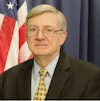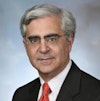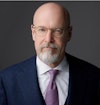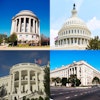Responses
The Chamber has assembled a range of preeminent experts in the field of antitrust from across a wide political spectrum to offer timely views on key questions of antitrust law and policy. This group brings together senior enforcers spanning seven administrations, from both the Antitrust Division at the Department of Justice and the Federal Trade Commission. The experts have decades of experience counseling clients and include leading economists and academics. They may not all agree on all policy matters, but they all share a common belief in the importance of competition in the marketplace.
If you have any ideas or suggestions, please email us at theprompt@uschamber.com
Current Prompt:
A. Fair
B. Unfair
C. It is the same thing
Interestingly, none of our experts chose one of the available options, and three made up a fourth response (“Neither”). More specifically, none of our respondents believes that antitrust is about deciding what is “fair.” However, four concluded that it is meant to address “unfair” conduct. Another two respondents answered that both are effectively the same thing, and three more replied that antitrust is about neither fairness nor unfairness.
*Responses are anonymized views of individual members of the expert group.
"Unfair"
“Section 5 of the FTC Act prohibits unfair competition. There is a distinct difference between prohibiting unfair competition and promoting fair competition, or even more of a stretch, promoting fair outcomes. Beauty is in the eye of the beholder, and so is fairness. Fair to whom? Over what timeframe? In which product lines and geographic regions? A highly subjective enforcement standard leads to changing enforcement approaches across administrations, and regulatory uncertainty inhibits investment and innovation (as the net neutrality saga has demonstrated).”
“Antitrust in the U.S. is a law enforcement, not regulatory, regime. It does not, and should not, impose affirmative obligations on firms. Rather, its role is to police conduct that lessens competition.”
“It’s meant to protect against unfair competition (or really anticompetitive competition.) I don’t know what “fair” means. There is no level playing field. Some companies have patents, some have lower-cost facilities. It’s a question of whether there are actions companies take that prevent a company from competing that aren’t within the scope of the law. And antitrust isn’t about trying to redo a market to make it more even.”
“If antitrust is appropriately considered law enforcement, and not a blunt policy tool for solving the economic, political, and social problems that spring from market power, then enforcers will bring cases about violations of the law, or “unfair" conduct. Clear legal burdens of proof support this interpretation. But changes in how courts interpret those burdens risk shifting the debate to determinations of what is “fair” competition versus enforcing against what is “unfair” competition, e.g., as we increasingly see in collusion cases.”
"It Is the Same Thing"
“It’s the same thing. The FTC Act prohibits “unfair” methods of competition. From a litigation perspective, it would be hard for enforcers or the courts to identify conduct that would be unlawful (i.e., “unfair”) without also considering what is lawful (i.e., “fair”)—they’re arguably two sides of the same coin. Moreover, from a compliance perspective, it is beneficial when the agencies provide guidance to business about permissible (i.e., “fair”) conduct rather than simply identifying categories of conduct that warrant scrutiny.”
“Federal antitrust law is concerned with challenging business conduct that is “not on the merits” because it is “exclusionary” – conduct that is designed to harm competition (and, ultimately, consumers), rather than advance a legitimate business purpose. Federal judges have emphasized that antitrust cares not about protecting individual competitors; rather, it cares about promoting competition in order to serve as a “consumer welfare prescription.” Because business “fairness” typically may be viewed as protecting rival firms from overly aggressive competition, it is not accurate to say that federal antitrust (at least federal antitrust case law) is concerned with “fairness” (even though some modern competitors use the term). Alternatively stated, “fairness” is only relevant to antitrust if it is defined as meaning nothing more than “promotion of consumer welfare.” I would therefore reject a and b and choose c, but only if c is limited to consumer welfare promotion. If c is not so limited, I reject all three options.”
“Same thing, but historically this meant consumer welfare.”
"Neither"
“Neither. Antitrust isn't about regulating business conduct under an amorphous standard of "fairness." It is about using law enforcement tools to prohibit specific conduct that harms competition and consumers. If the FTC's ill-fated effort to apply Section 5 of the FTC Act to whatever business conduct strikes the commissioners as "unfair" accomplished nothing else, it reminded us of this important distinction.”
“Neither “fairness” nor “unfairness” works as a basis for a stand-alone legal test. Both are too squishy and undefined, too much in the eye of the beholder. Either one is fine as a characterization of the outcome of a legal analysis undertaken by reference to more objective tests, though “unfair” is probably better for that purpose. That is, it’s OK to say conduct that violates Sections 1 or 2 or 7 or that runs afoul of other well-specified norms under Section 5 (such as attempt to collude) is deemed to be unfair. But a characterization turning only on fair/unfair doesn’t work in reverse; we can’t simply say that unfair conduct is unlawful or that only fair conduct is lawful, since neither formulation provides adequate notice of what’s permitted and what’s not.”
“Antitrust is about protecting and preserving competition. “Unfair” is in the eye of the beholder – too vague to be the basis for antitrust.”
Prompt 3: Antitrust Speeches
A. Something new can be gleaned.
B. Not much, same beer in new bottles.
C. Let’s wait until we start seeing more cases.
Total Responses*: 20
A slight majority (12) of the experts are taking the “wait and see” approach. Three experts answered (a) and three more answered (b). Rounding out the diversity of thought, one maverick answered “none of the above” and another answered “all of the above.”
*Responses are anonymized views of individual members of the expert group.
"Something New Can Be Gleaned"
“Something new can be gleaned. While time will tell, early returns suggest that the current administration intends to take an aggressive approach to enforcement. And it is not merely speeches—the agencies announced (among other things) that they intend to use the 2023 merger guidelines and will focus on labor harms. The agencies have also continued to litigate the "Big Tech" cases and have brought several new merger challenges. These actions suggest that the agencies will not shy away from litigation and intend to pursue an enforcement agenda that shares at least some similarities with the prior administration.”
“Something new can be gleaned. That is, the terms "America First antitrust" and "hillbilly antitrust” —along with “the Trump-Vance FTC” show that new agency leadership is hopeless at branding. Hopefully, they’ll be better than their immediate predecessors at enforcing the antitrust laws without fear or favor.”
"I think (A) is probably right, but there is some of (B) and (C) in there as well. There is a subtext under these new branches of thought that pushes for a reexamination of established norms around America’s role in antitrust and propagating American views regarding the discipline (particularly “America First” Antitrust). That has the capacity to undermine our role in multilateral bodies like ICN and OECD. The question is: if that happens, will it matter to American interests?”
"Not Much, Same Beer In New Bottles"
“The speeches are just another indication that Humphrey's Executor is dead. Much like the last administration, the current leadership does not have a coherent theory of antitrust to match with the populist slogans. What has changed in that populism of the left has been replaced with populism of the right. There is some overlap but only some. When populists go after conduct using traditional theories, they do relatively well. We learned from the last administration that when the populists identify novel theories that seem to lack intellectual consistency and robustness, they do less well. The current leadership teams across the agencies are strong and perhaps much of the speeches are talk to please the boss. The Trump antitrust leadership teams are full of highly accomplished and experienced people. These are challenging times and perhaps they are doing the best they can to navigate very tricky multiple goals.”
“I would tentatively answer b. I reject a; there is no intellectual content in such “new” forms of antitrust. Option c. might be a possible correct response only if “America first antitrust” is characterized by the enforcement agencies as a form of analysis that is consistent with consumer welfare-driven antitrust. It is possible, for example, that merger policy will start to allow more transactions that are not problematic to proceed without delay (something hinted at in the announced restoration of early termination). It would be helpful if the 2023 Merger Guidelines were tweaked in a way to allow greater recognition of efficiencies (including perhaps some “out of market” efficiencies). Time will tell.”
“I go with Answer B – seems mostly like rhetoric for the target audience vs. a real competition principle or affirmative agenda. I expect that 90% of enforcement will still be traditional. And new administration will look to cite to these ideas as mere window-dressing and red meat to non-antitrust crowd.”
"Let's Wait Until We Start Seeing More Cases"
“Let's see if the Trump 2.0 enforcers focus antitrust on issues that hit consumers and workers the hardest. If not, there is a real risk that far left antitrust populism will be succeeded by far right populism, which largely leaves them out of the picture.”
“The progressives in the Democrat Party and the populists in the Republican Party share the goals of (1) elevating the interests of labor and small business and (2) punishing large tech companies. For this reason, one can see parallels between the Neo-Brandeisian and America First Antitrust approaches -- at least as articulated. I'm eager to see how much is window dressing, and to what extent the cases brought under Trump 2.0 align with, or diverge from, the Kanter/Khan era.”
“We need to see the results of investigations and enforcement to be able to gauge whether this is a departure from the prior administration, a return to the enforcement in the first Trump Administration, or something different. We have too few data points to know whether the rhetoric will manifest in a different level of enforcement or enforcement priorities.”
“Let’s wait and see what cases the agencies bring. While the public statements indicate that the administration plans to bring cases and to assert aggressive theories in some situations, it is less clear how that will apply to specific cases.”
“The Trump White House seems to expect frequent professions of loyalty from political appointees and much of the antitrust rhetoric meets that description. We need to wait and see what this means in practice for actual cases, as agency leadership has also expressed an intention to follow case law.”
“Let’s wait to see what they actually do as to case selection. The enforcement decisions so far have been pretty mainstream – and sometimes a return to mainstream, reversing an edgy enforcement action brought during the Biden Administration. (See, e.g., the RP case against Pepsico.) But yes, some of the rhetoric suggests the possibility of greater alignment with the Biden team, including as to possible openness to considerations other than consumer welfare. We don’t really know yet.”
“Who knows what the new Administration’s policy is? I don’t, but then again I don’t think they do either. I’m as anti-elitist as they come, but it seems to me that it is a good idea to have someone who is proficient and experienced in antitrust leading the agencies. At times over the last 80 years that has not been the case, and I’m starting to wonder if that is the case now. The agencies’ apparent rejection of the consumer welfare standard and a retreat to the incoherent, subjective approach that predominated from the mid-1910s until the mid-1970s seems to be borne out of ignorance of history and a lack of familiarity with the problems businesses (really all market participants) face in trying to comply with the antitrust laws. For example, if Gail Slater were Bill Baxter’s student at Stanford in the late 1970s, she would receive an “F” for her recent comment that “fairness” is at the heart of antitrust enforcement policy – when he was Reagan’s AAG, he was highly derisive of anyone who justified their antitrust policy on the basis of “fairness.” While it is unclear what “hillbilly antitrust” is (at least beyond old Khan/Kanter wine in new Ferguson/Slater bottles), it is NOT what a Reaganite would characterize as “conservative” antitrust. In the 1980s, the Reagan’s policy was not driven by conservative (as opposed to liberal/progressive) political/social policies; rather, it was driven by the view that antitrust enforcement was at base a general regulatory regime that is best designed and implemented to deter and rectify private conduct that systemically and on balance is likely to undermine the market’s tendency to maximize total surplus (i.e., the original meaning of “consumer welfare”). To realize that view, we were focused on articulating and enforcing rules that focused exclusively on the economic (or consumer welfare) effect of conduct AND that attempted to minimize the regulatory cost (including expected Type I and Type II errors) of that enforcement. Much of our efforts during that time involved explaining why previous policies designed to further broader, more amorphous concepts of “competition” or worse “fair competition” (e.g., the preservation of local political control or of “small traders and worthy men”) were too often counterproductive to promoting free-market competition and consumer welfare. That is the fundamental lesson of Bork’s The Antitrust Paradox. As we would often say, the market does not have to work perfectly in order to work better than government (whether in the form of industry-specific regulation or more general antitrust enforcement). Apparently the current crew views private-sector bigness to be just as dangerous and threatening as governmental bigness; that is utterly at odds with what we would have seen as “conservative” antitrust enforcement policy in the 1980s. Of course, the foregoing is a reaction to the Administration’s rhetoric. It is still too early to know how this rhetoric translates in practice. While their rhetoric is very interventionist and implicitly hostile to free-market capitalism, in the real world they will still have to contend with 50 years of legal precedent as well as the push-back from the President’s constituency in the business world. If their rhetoric is focused on online platforms and/or concerns about progressive political priorities such as DEI and will not be extended economy wide, maybe the current enforcers won’t do too much damage. Time will tell.”
“Let’s wait until we start seeing some cases. That does not mean I am particularly sanguine about the Administration’s antitrust enforcement intent or that there is nothing to glean from these speeches. It would be foolish to ignore them. They reference a “realignment” of the Republican Party economic agenda to one that is more populist than traditionally conservative, bemoan “decades” of alleged under-enforcement, state that “big is bad,” and call for less reliance on economic analysis and less consideration of efficiencies in mergers. The point of the speeches seems to be to build support for a more interventionist enforcement policy than one might expect from a Republican Administration, including possibly Trump’s first Administration. The speeches also highlight areas where we might expect the Trump Administration to focus its enforcement resources—namely, in the healthcare industry, against big tech, in the agricultural sector, and against agreements that restrict labor mobility and compensation.”
“New antitrust leaders (certainly including Biden's) tend to package their policy goals in catchy new terms, but if I were advising a client about what these speeches mean, I would say (c), let's wait and see what cases the agencies actually bring. But the speeches do raise a real concern. The principles that supposedly underlie "America First" antitrust as set out in AAG Slater's Notre Dame speech -- protecting individual liberty against government and corporate tyranny, respecting textualism and precedent, and avoiding undue regulation -- are all unobjectionable, even laudable. But as articulated, these principles give the agencies free rein to pursue whatever policies they wish, untethered from fundamental grounding principles of law or economics. How will DOJ decide which corporate "tyranny" to challenge? Not much said, other than references to tech platforms that limit "free expression" (on January 6?). Which antitrust precedent will guide antitrust enforcement? "I have an open mind." And what does it mean to favor "litigation over regulation?" The door is seemingly left open for the Trump administration's antitrust agencies to replace their predecessors' formal regulations with their own brand of enforcement-driven regulation of a wide range of issues, such as tech platform content moderation.”
“Hard to tell from the rhetoric so far, and talk is cheap. I am waiting to see what cases the antitrust agencies bring -- or fail to bring -- under Trump 2.0.”
“C: America First Antitrust, “New Right” antitrust is something new, but we are still learning its contours. Recent speeches are starting to shed some light, but the types of cases “America First Antitrust” enforcers bring will more clearly define the doctrine. “
"None of the Above"
“A little bit of each. In some respects it is a continuation of certain Biden policies, which also were a continuation of certain Trump 1 policies. On the other hand, there seems to be a greater emphasis on protecting “the little guy.” Time to define with more precision exactly what it all means. Based on the speeches and limited set of agency actions, however, it seems to mean speedier clearance of matters that are not unlawful, active enforcement generally, and more aggressive enforcement in matters that implicate content moderation, energy, and DEI.”
“None of the above. Both agencies face severe resources limitations, have lost experienced and talented staff, and have substantial dockets. Unless and until the leadership deals with these challenges, the resource crunch – and not their stated agenda – will define their legacy.”
Prompt 2: FTC RFI Content Moderation
Total Responses*: 18
Overall, the experts are skeptical that a fact set exists…
- Responses that suggest that there would need to be an agreement amongst platforms (13)
- Responses that express other sentiments of skepticism (5)
*Responses are anonymized views of individual members of the expert group
"Need For An Agreement"
“Agreements to censor – to the extent they reduce output – could be considered as a potential antitrust violation.”
“Potentially – but facts matter. Absent an agreement among competitors, it is very difficult to see the issue as a competition law violation.”
“The easy case is one in which there is coordination among competitors to limit output. The much harder case is one involving unilateral actions even if the unilateral action is an exercise of market power. In those instances, it seems unlikely that antitrust could effectively govern how a firm chooses to manage content.”
“Antitrust cannot reach the unilateral, non-deceptive content moderation policies of the social media platforms. But it can reach group boycotts. Seen in context, it is clear that the current chair of the FTC is using the agency's powers to attack free speech, in the form of the platforms' content moderation policies, not to promote or defend it...”
“Theoretically there could be some theory based on collusion, if there is evidence platforms explicitly agreed to boycott conservative content. However, claims that platforms making independent editorial decisions on content is an antitrust violation because they had market power does not fit any established Section 1 theory. It sounds more like a public interest standard for media mergers under FCC review, but that does not apply to conduct or to entities not subject to FCC oversight.”
“If censorship or shadow-banning is undertaken collectively by several platforms, that could fit into the case law prohibiting group boycotts. There’s a potential First Amendment defense, depending on how one reconciles the Supreme Court cases in Trial Lawyers and Claiborne Hardware, but an agreement among platforms would present a clear question under Sherman Act Section 1. The issue is similar to recent challenges to collective ESG-focused alliances, based mainly in Europe but arguably with US effects. Although the alliances were encouraged by numerous foreign governments and leading NGOs such as the United Nations, commercial participants withdrew from some of them (see Net Zero Insurance Alliance) and restructured their collaboration once they were apprised of US antitrust exposures.”
“This is proverbial old wine/new bottle. Former Commissioner Pamela Jones Harbour pushed the FTC to expand reach of competition mandate to cover privacy, including during the review of the Google/Double-Click deal. Much thought was put into it then and the conclusion from a lot of smart people was that it was just another non-price element of competition – like quality. But hard to imagine using censorship or shadowbanning as the sole factor in challenging conduct. Focusing on traditional price or other traditional non-price elements should be sufficient.”
“This strikes me as similar to the discussion around whether there can be competition issues relating to data privacy concerns. I think there can be, but it’s going to be a pretty narrow set. In the censorship space, you could imagine, for example, competition for users and potentially advertisers based on policies relating to taking down certain types of content. Or you could potentially think about a firm with a so-called “platform” position exercising some kind of monopsony power vis-à-vis advertisers or speakers of certain viewpoints. But I’m really stretching here.”
“Yes. In theory, censorship could be viewed as a reduction in consumer welfare if such conduct degraded the consumer experience or were otherwise undesirable by consumers. For example, if several competitors agreed to a set of speech restrictions, such an agreement could be akin to an agreement not to compete on product quality. Similarly, speech restrictions could reflect a degradation of product quality by a monopolist exercising market power. Establishing such violations would be fact dependent and face hurdles, but it is at least plausible for Sherman Act theories to apply.”
“Those practices can be reached when they involve joint agreements (explicit or tacit) among competitors not to give access to certain speakers or types of speech. Such agreements could be characterized as illegal agreement not to compete on quality with respect to certain aspects of speech, in violation of Sherman Act Section 1 and FTC Act Section 5. It is also conceivable that joint conduct falling short of a contract that has such a speech-restrictive aim could be deemed as a violation of Section 5 of the FTC Act’s prohibition on unfair methods of competition, though it did not violate Sherman Act Section 1. Mere unilateral conduct to restrict speech, absent government coercion that may be deemed to have compelled such conduct, would not be an antitrust violation.”
“Yes, because of the question's breadth. On the antitrust side, if a group of competitors used censorship to limit competition among them or prevent competition from others, that would be an antitrust violation. If a company used censorship to obtain, protect, or expand a monopoly, that could violate antitrust laws as well (depending on the application of Trinko, etc.). The FTC has not offered a credible theory on how any of this activity has or could create, or protect, or expand market power. The FTC chair has said censorship is a reduction in quality, but that misses the fundamental point. Successful censorship might be evidence of market power; it says nothing about whether a violation of antitrust laws has occurred. Back when a local newspaper could be a monopoly, such a paper could refuse to print anything it wanted to. That decision could very well reduce the quality of the newspaper. It would not violate the antitrust laws. Nor is there much evidentiary basis to suggest the alleged activity is occurring. At a time when the agencies face massive demands and shrinking resources, the public consultation looks like a quixotic quest to find a problem that this FTC wants to exist. It should surprise no one, however, that this is where this FTC is focusing its attention.”
“At the outset, I confess I have not followed the FTC’s public consultation very closely and certainly did not participate on my own or on behalf of a client. Consequently, I have not considered the views expressed there in providing this answer. Having said that, depending on the relevant circumstances, the antitrust laws in theory could reach conduct that could be characterized as censorship or shadowbanning. If for example X and Instagram agreed to adopt and coordinate the same shadowbanning policy, it seems to me such an agreement could violate section 1 of the Sherman Act. Of course, the likelihood that there is evidence that competing, independently owned platforms have conspired seems low. Nonetheless, an agreement not to compete on censorship policy would be within the ambit of the Sherman Act (or the FTC Act) notwithstanding it does not directly impact price; while there would be good arguments that the agreement is not per se illegal but is subject to the rule of reason, justifications based on the value of the social policies promoted by the non-compete would almost certainly be disregarded. Whether unilateral censorship or shadowbanning, even by a platform with market power, would be subject to antitrust condemnation is less certain. At a minimum, the government or a plaintiff, it seems to me, would have to show that the conduct had an exclusionary effect in a market in which the platform competes. It’s not clear to me the government could show that since it is my understanding that most censorship or shadowbanning was the result of governmental pressure (maybe a First Amendment problem) or for a political purpose (outside the ambit of the antitrust laws). But again, I haven’t focused on all the arguments being made by the proponents of the use of the antitrust laws.”
“Social media platforms compete along several dimensions, including arguably with respect to their content moderation policies. Therefore, actual collusion (not merely parallel conduct) among platforms with respect to their individual content moderation policies (or to deny or degrade access to specific speakers or viewpoints) could violate the Sherman Act by unreasonably restricting this aspect of their competition. Depending on the facts, there could be a question whether an alleged agreement to “de-platform” certain types of speech is commercial conduct that could lead to antitrust liability or protected speech. The Supreme Court established the framework for assessing this question in Superior Court Trial Lawyers: Antitrust applies to an agreement among competitors where those competitors “stand to profit financially from a lessening of competition in the boycotted market.” Such a “commercial” boycott would not be sheltered from antitrust enforcement by the companies’ asserted good intentions. Even if a collusive content moderation-related agreement would not directly impact price (compare public defender pay in Superior Court Trial Lawyers) because of the nature of social media platforms, it could ensure that no competing platform would lose users and advertising revenue as a result of an independent decision to block or restrict certain content. In contrast, I do not believe that a company’s unilateral content moderation decisions could successfully be challenged for two reasons. First, the antitrust laws do not prohibit even a monopolist from unilaterally determining the price or non-price attributes of its product. Second, just like the First Amendment precludes the government from determining what editorial policy a newspaper can adopt, it should preclude the government from determining the content moderation policies of social media platforms.”
"Other Sentiments of Skepticism"
“It would be a stretch. Even under the consumer welfare standard, finding that harmful consolidation or business practices negatively impact content moderation is tough. The pathway would be a non-price effect like quality, where competition generates stronger incentives to feature diversity of opinion on media platforms. Even then, because of network effects, more competition may not deliver more diversity.”
“The case for using antitrust law to combat censorship is weak. It would have to be grounded in the claim that a firm that reaches a certain degree of economic dominance becomes something like a common carrier or public utility that then has obligations of reasonable access and non-discrimination. It's one thing for a public utility commission to determine the allowable price for electricity or telephone service, and quite another for a court to start regulating a private company's decisions about what speech to allow on its platforms.”
“One could imagine where antitrust and censorship overlap. However, that overlap is not significant and there are limits to what sort of conduct firms must undertake subject to a prior course of dealing. Recent courts cases explain why. Take for example FTC v. Qualcomm, which noted that the Sherman Act “does not restrict the long recognized right of [a] trader or manufacturer engaged in an entirely private business, freely to exercise his own independent discretion as to parties with whom he will deal.” Similarly, in Aerotec Int’l, Inc. v. Honeywell Int’l, Inc. the court stated “Competitors are not required to engage in a lovefest; indeed, ‘[e]ven an act of pure malice by one business competitor against another does not, without more, state a claim under the federal antitrust laws.’”
“It is hard to think of one. Antitrust law exists to regulate competition. So if there is a merger that will reduce competition in news or media delivery, then there is a place for a Clayton Act analysis around whether that reduction in competition will impact competition by or among journalists to deliver the news. Beyond that, the Founders almost certainly would be disturbed to learn that laws created to regulate competition in interstate commerce and big businesses are now being used to regulate free speech on tech platforms. That is the job of the First Amendment and it is not the place of antitrust law to fill that void through content moderation and regulation. To be sure, tech platforms have become critical sources of news for many, but no more than any Administration can regulate what appears on 60 Minutes should any Administration be able to regulate what appears on Meta, Google, or any other site. Indeed, Truth Social provides a great example of how quickly innovation and entry can occur if there is demand. There is a broader (and critically important) discussion to be had about whether, in the mid 90s, the rise of MSNBC and Fox News broke the democracy by providing politicized platforms for Americans to receive their news. But it is hard to see how regulating tech platforms is any different than telling a news outlet what they can and cannot offer from a content perspective. That is not the task of antitrust law.”
“The FTC's "censorship" initiative is just the latest example of the bipartisan perversion of antitrust to pursue political agendas that have nothing to do with antitrust, and little to do with consumer protection. Beginning with the Biden FTC under the neo-Brandeisians and continuing in the early stages of the Trump administration, we are seeing the agencies erode decades of hard-won credibility by pursuing initiatives aimed at pleasing the partisan urges of their political leaders that aren't grounded in law, economics or facts. Unilateral decisions about content policies, even by dominant platform firms, are lawful, and absent credible evidence of collusion among competing tech platforms, there is no apparent antitrust issue. One platform's content choices are an invitation to competing platforms to make different choices, as we see playing out in the real world. While we could imagine possible consumer protection issues, we need to acknowledge the obvious: this initiative is not about law enforcement or about protecting free speech, but about partisanship.”
Prompt 1: Antitrust State & Direction
Total Responses*: 18
- No (11)
- Yes (4)
- Other (3)
*Responses are anonymized views of individual members of the expert group
"NO"
“No. Antitrust enforcement at the federal level has become much more political and is no longer based on applying the facts and the law to prevent conduct and acquisitions that lessen competition and harm customers.”
“No, antitrust enforcement has been uncertain and erratic, leaving businesses guessing as to whether a transaction or conduct could trigger scrutiny while some transaction escape scrutiny all together.”
“No. 100 days in, we still have little power of prediction on where the Trump 2.0 antitrust agencies will go with top-line issues that matter the most to consumers (e.g., food, housing, healthcare). There is a non-trivial risk that the agencies will more freely exercise "prosecutorial discretion" in bringing and resolving cases, increasing the risk of weaponization in a critical area of law enforcement. Finally, the House Judiciary Committee’s GOP budget reconciliation promises to effectively eliminate the FTC, with no clarity as to how its powers will be preserved if transferred to the DOJ. This is a triple whammy of uncertainty and chaos for American consumers, workers, and businesses--at the worst possible time."
“No, I am not satisfied. Ideally the federal enforcers should clearly endorse a return to the bipartisan consumer welfare standard that existed from the early 1990s to 2020. Appropriate actions should then flow from such a pronouncement.”
“No. Antitrust enforcement, commentary and initiatives remain too politicized.”
“No. Current enforcement policy is moving in a positive direction relative to the Biden administration’s misguided and politically-driven enforcement. However, recent statements about certain enforcement priorities go beyond the consumer welfare standard and seem mainly aimed at furthering specific political initiatives (e.g., speech moderation and DEI).”
“No. Democrats and Republicans alike have reduced their focus on consumers and are spending much of their energy on things that the press and politicians care about. It grabs headlines for the enforcers but does little for the average person. However, one bright spot is the effort to identify anticompetitive regulations.”
“No. Over the span of my career, antitrust made steady, bipartisan progress toward the policy ideals of transparency, fairness, and a coherent legal/economic framework that promoted competitive markets to the benefit of consumers and the economy. In recent years, enforcement regimes from both parties have undermined that progress with policies that too often promote ideology over analysis and politics over the rule of law.”
“No. Why? There’s too much uncertainty at the moment. There are some initial signs that review of mergers are becoming more timely (and e.t. is really back yeah!) but there are also a lot of questions about how merger enforcement is working. On the conduct side, the focus on big tech seems to be at the expense of any other enforcement, which is not ideal.”
“No. ‘Why’ can be answered from several perspectives, including substantively and politically. This is a challenging time.”
“No or at least not really, at least outside of the courts (though even there some decisions by Obama/Biden judges have been among the worst in the 135 year history of the federal antitrust laws). The current Administration seems committed to continuing the direction of the last Administration in the guise of “hillbilly populism” I guess. It is early days; nonetheless, the initial signals are that they are pursuing political objectives with virtually no regard for sound economic analysis or the impact on consumer welfare. It is back to the bad old days of antitrust before the 1980s – they’re making antitrust grotesque again!”
"YES"
"OTHER"
Meet the panel

























Contact Us
If you have any questions or concerns, please email Sean Heather - Senior Vice President (sheather@uschamber.com) and Ashley Gum - Vice President (agum@uschamber.com).
Disclaimer
*Responses to the prompt are solely the anonymized views of individual members of the expert group. The opinions expressed should not be associated with policy positions of the U.S. Chamber, nor should the opinions be attributed to any individual in the group or to any law firm, client, organization, or affiliation an expert may have. The chamber has provided biographical information of each expert simply to illustrate the extensive experience and thought leadership positions that each has held during his or her career. For any reason (E.G., to avoid a conflict of interest) an individual expert might elect not to participate in the response to a particular question.




